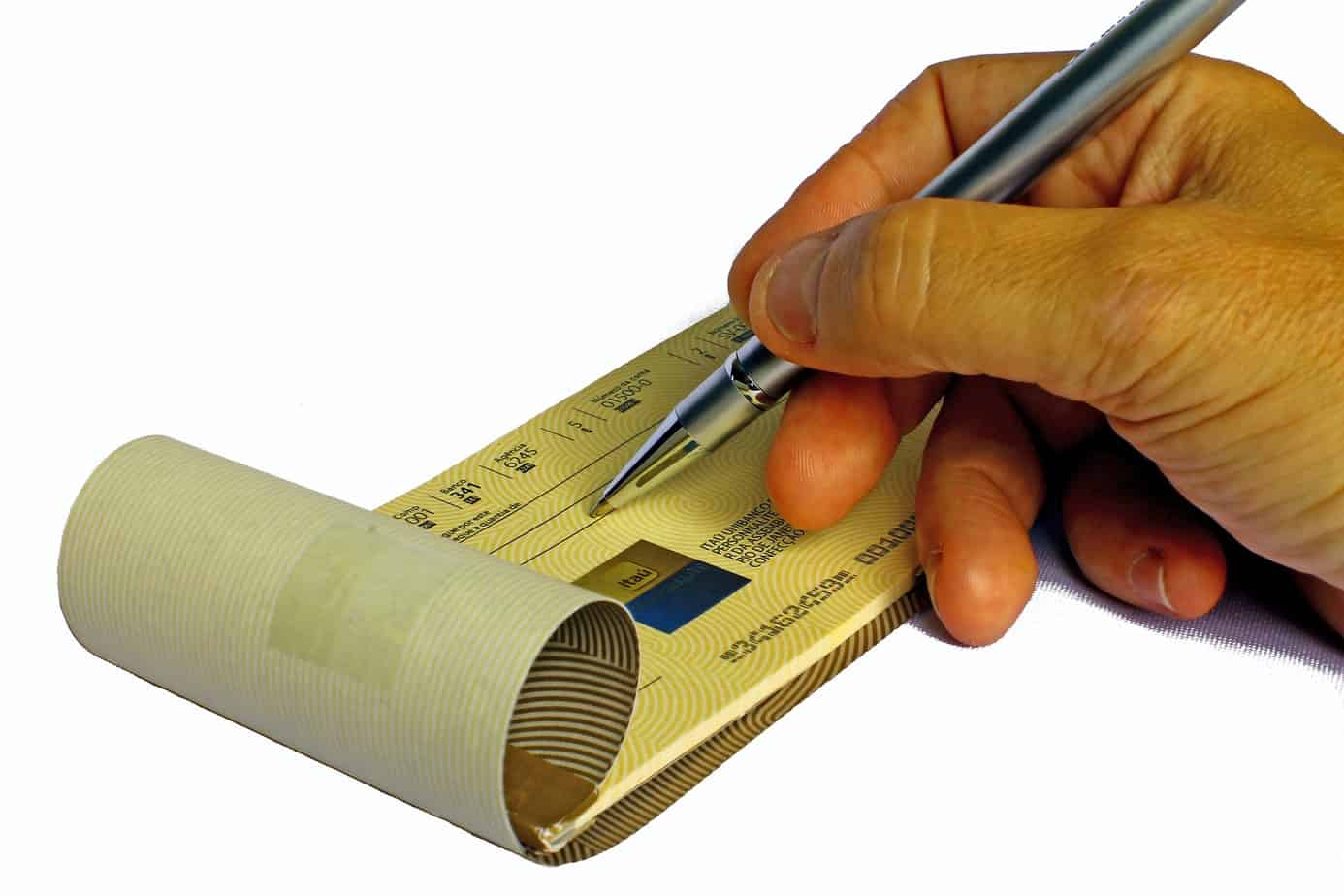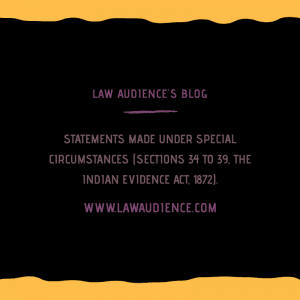DISHONOUR OF NEGOTIABLE INSTRUMENTS[1]:
INTRODUCTION:
A Negotiable Instrument is a signed document which promises the payment of specific amount to the bearer or entity on a specified date or on demand. The most distinct feature is that the document is transferable i.e., the final holder of the instrument gets the payment from the debtor irrespective of the fact whomsoever was the initial bearer of the instrument.
“According to Section 13 of the Negotiable instruments Act, 1881 promissory notes, bills of exchange and cheque fall under the category of negotiable instruments[2].”
PROMISSORY NOTE:
According to Section 4 of the Act, ‘It is an instrument in writing containing an unconditional undertaking, signed by the maker , to pay a certain sum of money only to, or to the order of, a certain person, or to the bearer of the instrument.[3]’
The following are the important features of a valid promissory note.
- It should be in writing, signed by the maker.
- There should be a promise or an undertaking to pay. For e.g., I promise to pay Ram Rs. 10,000 for value received.
- The promise to pay must be unconditional. For e.g., I promise to pay Ram after the death of his father. The above mentioned example is not a promissory note as it has a condition attached with it.
- The payment is to be made by money, and a certain amount of money is to be mentioned. For e.g., I promise to give my house for the services received. This can’t be a valid promissory note as the payment is not made in the form of currency.
- The parties are to be mentioned. The name of the maker and the holder of the instrument are mentioned in the promissory note.
- The promissory note is payable to the bearer or the order of the instrument.
- The amount payable must be paid in a determined future time.
BILLS OF EXCHANGE:
Under Section 5 of the Act,’ It is an instrument in writing containing an unconditional order, signed by the maker, directing a certain person to pay a certain sum of money only to, or to the order of, a certain person or to the bearer of the instrument’[4].
In bills of exchange, there can be involvement of three parties:
- Drawer: The maker of the bills of exchange i.e., the seller who sells on credit to the purchaser.
- Drawee: The purchaser who is entitled to pay the drawer the sum of money he owes.
- Payee: The person who receives the payment. The Drawer can also be the payee if he retains the bills of exchange.
It is to be noted that, the drawee’s liability towards the payee is more in comparison with the drawer. In case of immediate need of money the payee can discount the bill with a bank.
The most distinct feature in bills of exchange is that two separate debts can be discharged by a single BOE. For e.g., If A, issued BOE to B and asked him to pay the amount C, The debt owed by B to A and the debt owed by A to C is cleared at the same time in a single BOE.
CHEQUE:
According to Section 6 of the Act,’ It is a bill of exchange drawn on a specified banker and not expressed to be payable otherwise than on demand and it includes the electronic image of a truncated cheque and a cheque in the electronic form.[5]’
The Features of a cheque are:
- Drawn on a specific bank.
- The payment is paid via bank accounts. The transaction of currency is not done.
- It is always payable on demand on a specified date.
- It is also payable to the bearer.
- Involvement of Drawer, drawee and a payee. The drawee is always a bank.
DISHONOUR OF NEGOTIABLE INSTRUMENTS:
- DISHONOR BY NON- ACCEPTANCE:
Section 91 of the Act states that a bill is considered to be dishonored in the following scenarios.
- If a drawee or one of several drawees who are not partners fails to accept the bill, the bill becomes dishonored.
- If the bill is not presented, it stands dishonored.
- If the drawee is incompetent to contract.
- If the acceptance is qualified.
- If the drawee remains lost after reasonable search.
- If the drawee is dead or has become insolvent, and the drawer fails to present the instrument to the representative of the drawee. Then the bill stands dishonored[6].
- DISHONOR BY NON-PAYMENT:
Section 92 of the Act states that a promissory note, bill of exchange or cheque remains dishonored in the following circumstances.
- If there is a default in payment.
- If there is partial payment made and the remaining payment is still not made after the maturity date[7].
- DISHONOR OF CHEQUE DUE TO INSUFFICIENCY OF FUNDS IN THE ACCOUNT:
According to Section 138 of the Negotiable instruments act, a cheque is returned by the bank to payee drawn by the drawer due to insufficiency of funds in his account is a criminal offence. The drawer will be imprisoned for two years and would have to pay a fine of amount which is equivalent to twice the amount paid by him. Though this offense is of civil nature, a fine and penal sentence is imposed due to two reasons i. to deter people from committing this offense ii. To get back the money lost by the holder[8].
HOW TO FILE A CASE UNDER DISHONOR OF CHEQUE DUE TO INSUFFICIENCY OF FUNDS:
Considering the hierarchy of courts, the cases of such nature will be heard by the Judicial Magistrate of First Class Court or the Metropolitan Magistrate Court. The procedure to be followed by the holder in order file a case is elucidated below.
- If a cheque is dishonored the bank would inform the holder about it and the bank would also mention the reason for the cheque being dishonored.
- The holder can send a legal notice to the drawer with the help of a lawyer within 30 days of knowledge of the issue. The notice would make a demand to the drawer to pay the default within 15 days after the issue of notice.
- If the drawer fails to make the payment the holder can file a case within a month’s time after 16th day of issue of notice.
DISCHARGE FROM LIABILITY:
Under the following circumstances the drawer is discharged from the liability, they are:
- If the holder cancels the name of the drawer, acceptor or indorser in the instrument[9].
- If the holder releases the maker, acceptor or indorser from the instrument[10].
- If the payment is made to the holder[11].
- If the holder allows the drawee more than 48 hours to accept the bill, then the bill is discharged[12].
- When cheque is not duly presented or When the cheque is payable to order[13].
- If there is a material alteration. In such a case the negotiable instrument stands void as the parties aren’t aware of the alteration made. They wouldn’t have consented to the new alteration made[14].
Thus, the act governs the transaction involving negotiable instruments effectively.
[1] Authored By: Ms. Rishitha.K, B.B.A.LL.B, 3rd Year Student at IFIM Law College & Research Writer at Law Audience: Edited By: Mr. Varun Kumar (Founder & CEO & Editor-In-Chief).
[2] Section 3, The Negotiable Instruments Act, 1881, No. XXVI, Acts of Parliament, 1881 (India).
[3] Section 4, The Negotiable Instruments Act, 1881, No. XXVI, Acts of Parliament, 1881 (India).
[4] A “bill of exchange” is an instrument in writing containing an unconditional order, signed by the maker, directing a certain person to pay a certain sum of money only to, or to the order of, a certain person or to the bearer of the instrument.
A promise or order to pay is not “conditional” within the meaning of this section and section 4, by reason of the time for payment of the amount or any installment thereof being expressed to be on the lapse of a certain period after the occurrence of a specified event which, according to the ordinary expectation of mankind, is certain to happen, although the time of its happening may be uncertain.
The sum payable may be “certain”, within the meaning of this section and section 4, although it includes future interest or is payable at an indicated rate of exchange, or is according to the course of exchange, and although the instrument provides that, on default of payment of an installment, the balance unpaid shall become due.
The person to whom it is clear that the direction is given or that payment is to be made may be “certain person”, within the meaning of this section and section 4, although he is misnamed or designated by description only.
[5] Section 6, The Negotiable Instruments Act, 1881, No. XXVI, Acts of Parliament, 1881 (India)..
[6] Section 91, The Negotiable Instruments Act, 1881, No. XXVI, Acts of Parliament, 1881 (India)..
[7] Section 92, The Negotiable Instruments Act, 1881, No. XXVI, Acts of Parliament, 1881 (India)..
[8] 138. Dishonor of cheque for insufficiency, etc., of funds in the accounts:
Where any cheque drawn by a person on an account maintained by him with a banker for payment of any amount of money to another person from out of that account for the discharge, in whole or in part, of any debt or other liability, is returned by the bank unpaid, either because of the amount of money standing to the credit of that account is insufficient to honor the cheque or that it exceeds the amount arranged to be paid from that account by an agreement made with that bank, such person shall be deemed to have committed an offence and shall without prejudice to any other provisions of this Act, be punished with imprisonment for a term which may extend to one year, or with fine which may extend to twice the amount of the cheque, or with both:
PROVIDED that nothing contained in this section shall apply unless:
(a) the cheque has been presented to the bank within a period of six months from the date on which it is drawn or within the period of its validity, whichever is earlier.
(b) the payee or the holder in due course of the cheque, as the case may be, makes a demand for the payment of the said amount of money by giving a notice, in writing, to the drawer of the cheque, within fifteen days of the receipt of information by him from the bank regarding the return of the cheque as unpaid, and
(c) the drawer of such cheque fails to make the payment of the said amount of money to the payee or, as the case may be, to the holder in due course of the cheque, within fifteen days of the receipt of the said notice.
Explanation: For the purpose of this section, “debt or other liability” means a legally enforceable debt or other liability.
Comment: As the signature in the cheque is admitted to be that of the accused, the presumption envisaged in Section 118 of the Act can legally be inferred that the cheque was made or drawn for consideration on the date which the cheque bears. Section 139 of the Act enjoins on the Court to presume that the holder of the cheque received it for the discharge of any debt or liability. The burden was on the accused to rebut the aforesaid presumption. K. Bhaskaran, Appellant v. Sankaran Vaidhyan Balan, AIR 1999
[9] Section 82 (a), The Negotiable Instruments Act, 1881, No. XXVI, Acts of Parliament, 1881 (India).
[10] Section 82 (b), The Negotiable Instruments Act, 1881, No. XXVI, Acts of Parliament, 1881 (India).
[11] Section 82 (c), The Negotiable Instruments Act, 1881, No. XXVI, Acts of Parliament, 1881 (India)..
[12] Section 83, The Negotiable Instruments Act, 1881, No. XXVI, Acts of Parliament, 1881 (India)..
[13] Section 84. When cheque not duly presented and drawer damaged thereby:
(1) Where a cheque is not presented for payment within a reasonable time of its issue, and the drawer or person on whose account it is drawn had the right, at the time when presentment ought to have been made, as between himself and the banker, to have the cheque paid and suffers actual damage through the delay, he is discharged to the extent of such damage, that is to say, to the extent to which such drawer or person is a creditor of the banker to a large amount than he would have been if such cheque had been paid.
(2) In determining what a reasonable time is, regard shall be had to the nature of the instrument, the usage of trade and of bankers, and the facts of the particular case.
(3) The holder of the cheques as to which such drawer or person is so discharged shall be a creditor, in lieu of such drawer or person, of such banker to the extent of such discharge and entitled to recover the amount from him.
[14] Section 87, The Negotiable Instruments Act, 1881, No. XXVI, Acts of Parliament, 1881 (India)..



